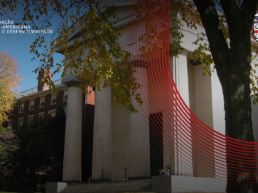Applications are open for the FLAD/OPP – Mental Health in Higher Education program, which will allocate € 100,000 to psychological intervention projects in Higher Education Institutions (HEIs). The objective is to support the development of projects that contribute to a lower incidence of Mental Health problems among students, which have reached very high levels due to the pandemic.
This pioneering program is the result of a partnership with the Portuguese Order of Psychologists (OPP) and has the high patronage of the Presidency of the Republic. The objective is to contribute to a lower prevalence of Mental Health problems among students, who already existed but were aggravated by the COVID-19 pandemic.
The Psychology or Health Services of public higher education institutions can apply to the program with projects that help students, preventively, develop skills that strengthen their Mental Health.
FLAD provides funding up to 100,000 euros, to be distributed for a maximum of three applications, which involve the hiring, for a school year, of a psychologist/ a psychologist who will implement the project under the coordination of the respective service. Multidisciplinary, the involvement of different departments, the sustainability and replicability of projects, among other factors, will be privileged.
Projects can have very different contours, such as mental health promotion campaigns that reinforce strategies for dealing with problems, creating peer groups that promote social support, or training institution leaders to promote a culture change at the mental health level.
Eligibility
Candidates:
- Psychology Services of public Higher Education Institutions in Portugal, whose coordination devote a minimum of 25% of their working time to the development of the Project. The remaining development team of the Intervention Project shall include at least one psychologist (full member or opp trainee), OR
- Health Services of public higher education institutions in Portugal, provided that they include, in the constitution of their team, psychologists who perform psychological intervention.
Features of the projects:
- Include as a general objective the promotion of mental health literacy, incorporating strategies that contribute to combat the stigma associated with mental health difficulties and problems and facilitating, whenever necessary, the active search for specialized support;
- Have as specific objectives the development of at least two socio-emotional competencies related to the construction of resilience and the promotion of Mental Health and well-being, namely emotional self-regulation, problem solving, decision-making, adaptability, motivation, orientation to goals, self-confidence and self-efficacy, altruism, empathy and interpersonal relationship skills;
- Focus on group approaches that can stimulate learning, peer interaction, sharing experiences and creating and maintaining interpersonal relationships and support networks;
- Integrate the articulation and collaboration with internal and external services and resources to higher education institutions (e.g. municipal councils, IPSS, associations, occupational health services, public and private psychological and psychiatric support services) in initiatives that can enhance intervention through the optimization of existing resources, as well as facilitate the planning and implementation of cross-cutting actions, impact on the whole community;
- Consider the possibility of involving the students themselves in the design, implementation and evaluation of the approaches and activities to be carried out;
- Ensure in its structure and organization, in the long term, the sustainability and continuity of the practices to be implemented, proposing indicators for its monitoring, in a logic of global promotion of the emotional, social, academic and professional skills of the student community and strengthening the responsibility of higher education institutions in the preparation of competent, creative and inventive citizens and in the construction of a critical citizenship, participatory and transformative;
- To generate scientific evidence about its validity, usefulness and cost-effectiveness, which may allow the disseminating of knowledge and practices to other institutions, replicating the programs in other contexts.
Each service may submit only one application through the form available on https://flad.secure.force.com/CandidaturaMain?language=pt_PT. Applications submitted through this form will only be accepted and that respond to all information requested from it. Documents that instruct the application must be submitted in Portuguese.
Selection
Applications and their projects will be evaluated according to the following parameters:
- Compliance with eligibility criteria;
- Scientific merit and originality;
- Proposed methodology and expected results;
- Evaluation strategies and indicators;
- Cost-effectiveness;
- Adaptability (including the possibility of replicating projects in other contexts);
- Involvement of other elements of the educational community.
To assess these parameters in more detail, the jury may request additional information, including through interviews with the author of the application, which may take place in person or by video call.
Jury
Applications will be evaluated by a jury composed of:
- Ana Isabel Lage Ferreira, member of the board of the Portuguese Order of Psychologists;
- Ângela Maia, professor in the Department of Applied Psychology at the School of Psychology of the University of Minho;
- Maria da Conceição Bento, Director General of Higher Education.
Deadlines
- Applications are open from April 11 to June 19, 2022
- The winner will be announced on July 19
See the notice of this contest (here) for all the details about the Program and the application process.
More information or clarification, please contact: margarida.carvalho@flad.pt
Related Posts
March 24, 2025
Applications Open: FLAD/Saab Visiting Professor at UMass Lowell 2026
Portuguese professors can apply to…
March 5, 2025
Flechada 2025 – Five Artists Selected to hold their First Solo Exhibition with FLAD Support
The program will support five young…
February 28, 2025
Ana Balona de Oliveira and Thais França are the next Visiting Professors at Brown University
Researchers Ana Balona de Oliveira and…


